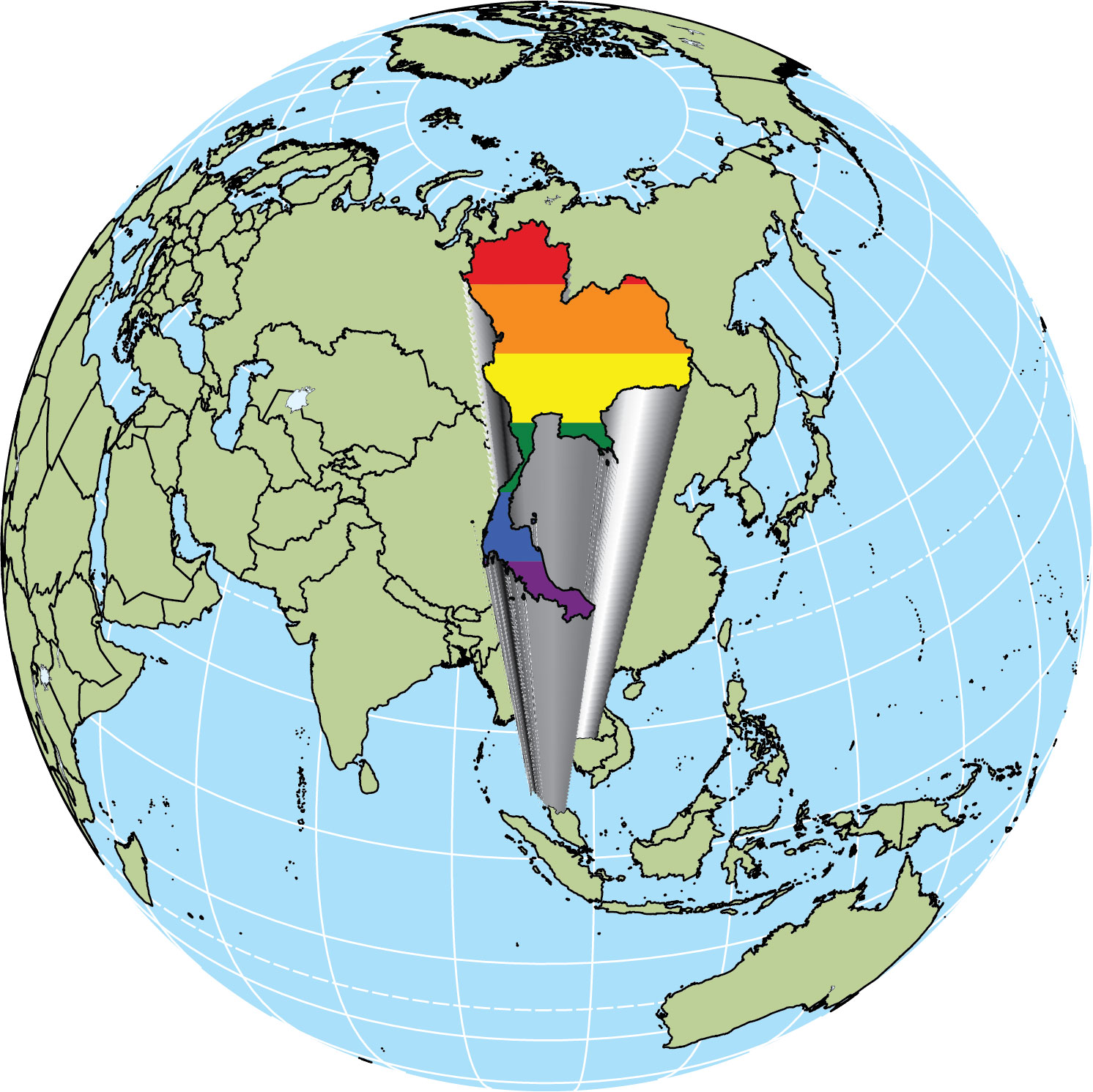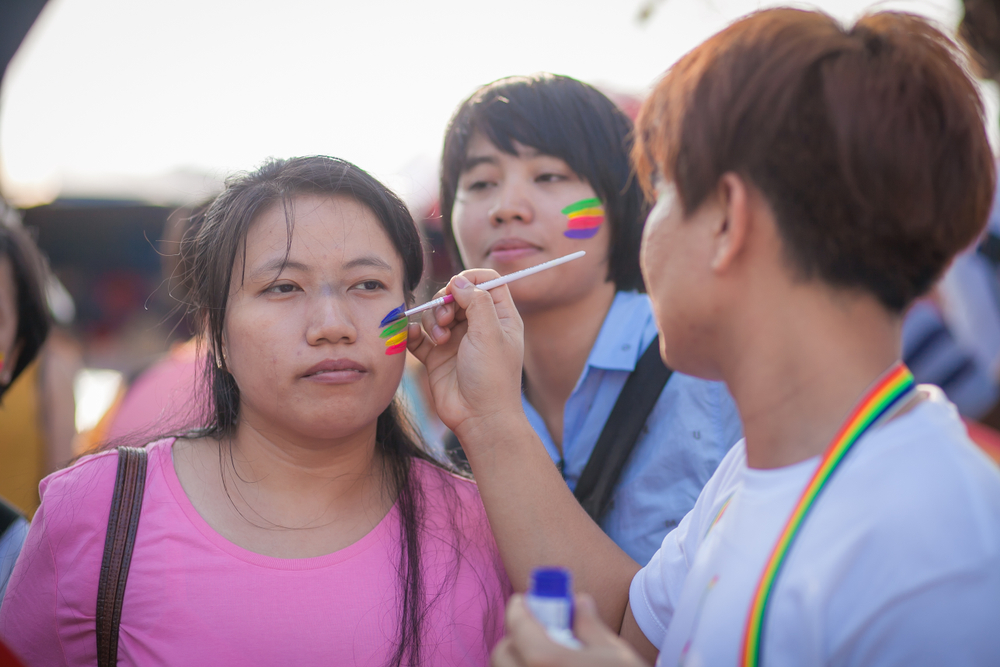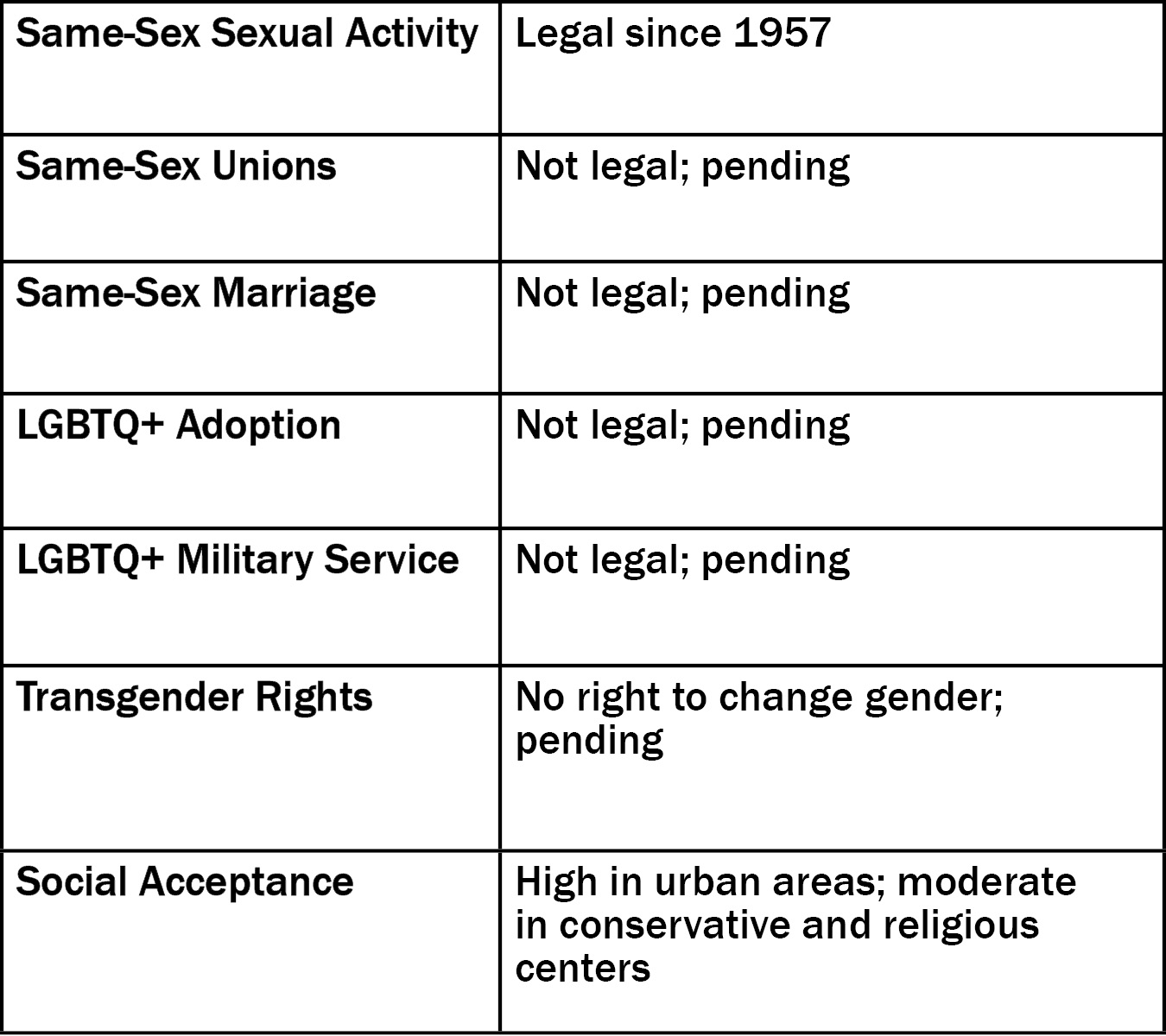LGBTQ: Legal and Cultural Status
Over the past few years, the LGBTQ+ community has been the beneficiary of a marked shift in global public opinion, with movement towards greater cultural acceptance and enhanced legal status. Nevertheless, views are not uniform across all countries.
In the most progressive countries, members of the LGBTQ+ community enjoy cultural acceptance, social freedoms, and full legal status. In the most restrictive countries, identifying as LGBTQ+ or engaging in same-sex acts is punishable by jail or death.
When preparing to travel abroad as a tourist or for business, members of the LGBTQ+ community should thoroughly research country-specific legal, cultural, and security issues prior to departure.
Understanding where a destination country falls on the spectrum of acceptance allows LGBTQ+ individuals to decide whether to travel to a given destination and to understand how to conduct themselves safely when they arrive.
Legal Facts
Same-Sex Sexual Activity
In the early 1900s, Thailand introduced a criminal code heavily influenced by British laws. This criminal code includes laws against sodomy, or non-procreative sexual activity. This technically made same-sex sexual activity illegal. The law was removed from criminal code in 1956, however there is no evidence that the law was ever enforced.
Same-Sex Unions
There have been multiple attempts to legalize same-sex civil unions in Thailand. A draft bill called the “Civil Partnership Act” was introduced in 2014, and the “Same Sex Life Partnership Registration Bill” was introduced in 2018. The latter eventually made its way to the National Assembly, though has faced a lengthy process of revisions which have indefinitely stalled the bill. If the bill passes, partnership registrations will be available to same-sex couples which will allow them similar rights to those possessed by heterosexual couples.
Same-Sex Marriage
Same-sex marriage is not legal in Thailand. There is a law that has been proposed within the country’s legislative system which would allow for same-sex marriages should it be enacted. However, most countries around the world have introduced civil union or life partnership laws before introducing same-sex marriage laws. By that precedent, it is unlikely Thailand will legalize same-sex marriage before providing life partnerships to LGBTQ+ couples.
Adoption
Adoption is currently limited to married couples in Thailand. It is thought that same-sex marriage legalization would create an inherent path to adoption for LGBTQ+ couples. However, should the “Same Sex Life Partnership Registration Bill” become law in Thailand, adoption would still not be available to registered life partners.
Military Service
In 2005, the Thai military began to allow LGBTQ+ to serve in the military, reversing their previously held position that LGBTQ+ individuals were exempt due to a “mental illness.”
Gender Identity Laws
Currently, there are no laws allowing for individuals to legally change their gender. However, Thailand has an international reputation as a medical destination for gender reassignment surgeries. There are large trans communities throughout Thailand, and transgender individuals have historically seen some public representation in film and television. There is currently a law that has been proposed to grant transgender individuals legal avenues to change their gender and receive legal equality.
Anti-Discrimination Laws
On March 13, 2015, the Gender Equality Act B.E. 2558 was passed. It became effective on September 9, 2015. The law was the first law passed in Thailand to explicitly protect LGBTQ+ individuals, saying that any discrimination against a person with a non-heterosexual orientation is punishable by prison time.
Cultural Considerations
Public Opinion
Thailand has long been considered a gay-friendly country, with Bangkok specifically considered one of the most gay-friendly cities in Asia. Many of the country’s large cities having thriving LGBTQ+ communities. There is a much more accepting attitude toward LGBTQ+ individuals in Thailand than the country’s laws suggest. Recent polling suggests that more than 90 percent of Thai citizens would be comfortable with LGBTQ+ coworkers, friends, or family members. More than 60 percent of the country is in favor of legalizing same-sex marriage, with less than 10% of the country outright opposed to the idea.
Public Displays of Affection
In Thailand, moderate public displays of affection, including linking arms and holding hands, are common and acceptable. Kissing or more intimate public displays of affection are taboo within Thai culture. Younger generations are slowly changing this attitude, becoming more publicly affectionate than the older populations. Especially in major cities, LGBTQ+ couples may be seen holding hands or hugging in public. However, any public displays of affection much more intimate may draw unwanted attention regardless of the sexual orientation or gender identity of the couple.
Opinions on Cohabitation
Thailand is broadly open to LGBTQ+ couples living private lives. There are no pervasive opinions against the cohabitation of LGBTQ+ couples.
Consistency of Opinions
Thailand is broadly quite welcoming of LGBTQ+ individuals and couples. Within major cities, such as Bangkok and Chiang Mai, there are thriving LGBTQ+ scenes that draw travelers and visitors from around the world. People in rural areas may be less familiar with LGBTQ+ individuals. While there is a possibility that rural and religious communities may be less accepting toward LGBTQ+ individuals, Thailand generally has a “live and let live” attitude.
Article written for World Trade Press by Taylor Holloran.
Copyright © 1993—2025 World Trade Press. All rights reserved.

 Thailand
Thailand 


